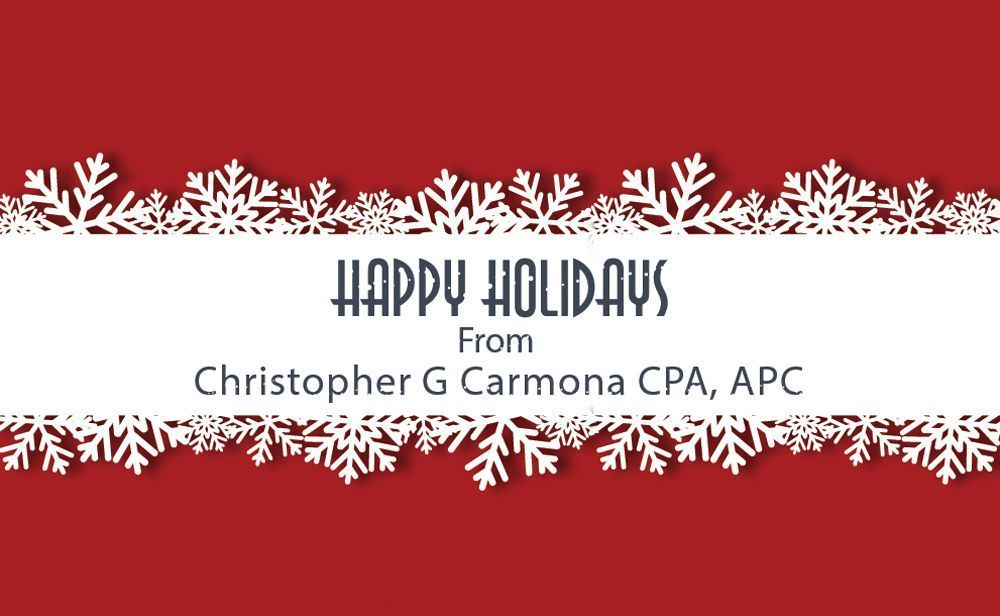
For individuals and businesses facing tax challenges in Diamond Bar, CA, understanding the intricacies of estimated tax payments is crucial, especially when considering an Offer-In-Compromise (OIC). At Christopher G Carmona CPA, APC, we specialize in IRS problem solutions and tax debt relief. In this blog, we'll dive into the calculation of estimated tax payments and how they play a role in the OIC process. Deciphering Estimated Tax Payments for OIC 1. The Importance of Estimated Tax Payments The IRS requires taxpayers to make estimated tax payments throughout the year to cover their tax liabilities. These payments are significant in demonstrating your willingness to fulfill your obligations. 2. Calculating Estimated Tax Payments Estimating tax payments involves predicting your income, deductions, and credits for the tax year. This calculation provides a basis for determining how much you should pay to the IRS throughout the year. 3. Impact on OIC Proposal When crafting an OIC proposal, accurate estimated tax payments showcase your commitment to meeting your tax responsibilities. The IRS considers your compliance history and estimated payments as contributions towards a favorable impression. 4. Ensuring Compliance Non-compliance with estimated tax payments can affect your OIC eligibility. Collaborating with a CPA firm like Christopher G Carmona CPA, APC, ensures you're on track with your payments and fully compliant. 5. Expert Assistance for Calculations Navigating estimated tax payments can be complex, but with expert guidance, you can avoid miscalculations. As your tax debt solution provider, I can help you accurately determine your estimated tax payments and align them with your OIC goals. The calculation of estimated tax payments holds a significant place in the Offer-In-Compromise journey. If you're seeking a solution to your tax debts, understanding and properly managing your estimated payments is vital. Contact Christopher G Carmona CPA, APC to benefit from expert assistance that ensures your estimated tax payments are in line with your OIC objectives. Get in touch with us today To learn more about what we have, please click here . To contact us, please click here or call us at (800) 227-2891 .

Offer In Compromise (OIC) stands as a beacon of hope for individuals and businesses in Diamond Bar, CA, burdened by tax debts. At Christopher G Carmona CPA, APC , I specialize in providing solutions for IRS problems, including OICs. In this blog, we'll explore key things you should know about the OIC process and how it can bring financial relief. Navigating the Offer In Compromise Process 1. Assessing Your Eligibility Before embarking on an OIC journey, understanding your eligibility is crucial. The IRS considers factors such as your ability to pay, income, expenses, and equity in assets when evaluating your OIC proposal. 2. Developing a Strong Proposal Crafting a compelling OIC proposal involves meticulous documentation of your financial situation. Enlisting professional assistance from Christopher G Carmona CPA, APC ensures your proposal is thorough and well-presented. 3. Realistic Offer Amount The IRS reviews your offer amount to determine if it reflects your true ability to pay. The strategic calculation, leveraging expert guidance, ensures your offer aligns with your financial circumstances. 4. Negotiating with the IRS The OIC process often involves negotiations with the IRS. Having a knowledgeable CPA by your side ensures you navigate these discussions effectively, advocating for a fair resolution. 5. The Impact of Acceptance If your OIC is accepted, you can experience significant relief from your tax debts. However, adhering to the terms of the agreement is essential to maintain this relief. If you are looking for resolving tax debts and achieving financial freedom, then contact Christopher G Carmona CPA, APC . As a CPA firm specializing in IRS problem solutions, we can guide you through this complex process. If you're seeking relief from tax burdens, contact us to embark on the journey toward a fresh start with the IRS. Get in touch with us today To learn more about what we have, please click here . To contact us, please click here or call us at (800) 227-2891 .
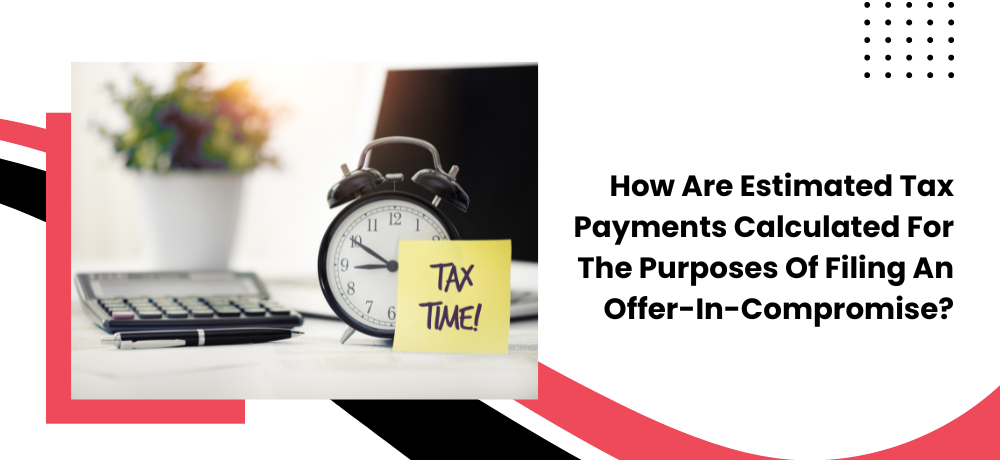
Navigating the intricacies of tax matters can be overwhelming, especially when it comes to business assets and the IRS. As a leading CPA Firm in Diamond Bar, CA, Christopher G Carmona CPA, APC . specializes in providing tailored solutions for IRS problems and tax debts. In this blog, we'll dive into the crucial topic of how the IRS treats business assets for the purpose of filing an Offer-In-Compromise (OIC), shedding light on key considerations. Understanding Business Assets and Offer-In-Compromise Business Assets and OIC Eligibility When seeking an Offer-In-Compromise, understanding how the IRS evaluates business assets is essential. The IRS considers the equity value of assets such as property, vehicles, inventory, and equipment. Our CPA experts at Christopher G Carmona CPA, APC can help assess your business assets and determine eligibility for an OIC. Equity and Valuation The IRS determines the equity value of assets by assessing the fair market value minus any outstanding loans or liens. Calculating accurate valuations is crucial, as it impacts your OIC proposal's success. Our experienced team excels at ensuring proper valuation, maximizing your chances of a successful resolution. Navigating Business Income and Expenses Income and OIC Calculations When filing for an Offer-In-Compromise, your business's income and expenses play a pivotal role. The IRS examines your cash flow to assess your ability to pay outstanding taxes. Christopher G Carmona CPA, APC , possess the expertise to strategically present your financial situation, making a compelling case for your OIC. As you embark on the journey of resolving IRS issues, remember that understanding how the IRS treats business assets is crucial for a successful Offer-In-Compromise. If you’re looking for tailored solutions for your business assets and Offer-In-Compromise concerns, reach out to Christopher G Carmona CPA, APC . At Christopher G Carmona CPA, APC. our specialized services encompass IRS problem solutions and tax debt management. Get in touch with us today To learn more about what we have, please click here . To contact us, please click here or call us at (800) 227-2891 .
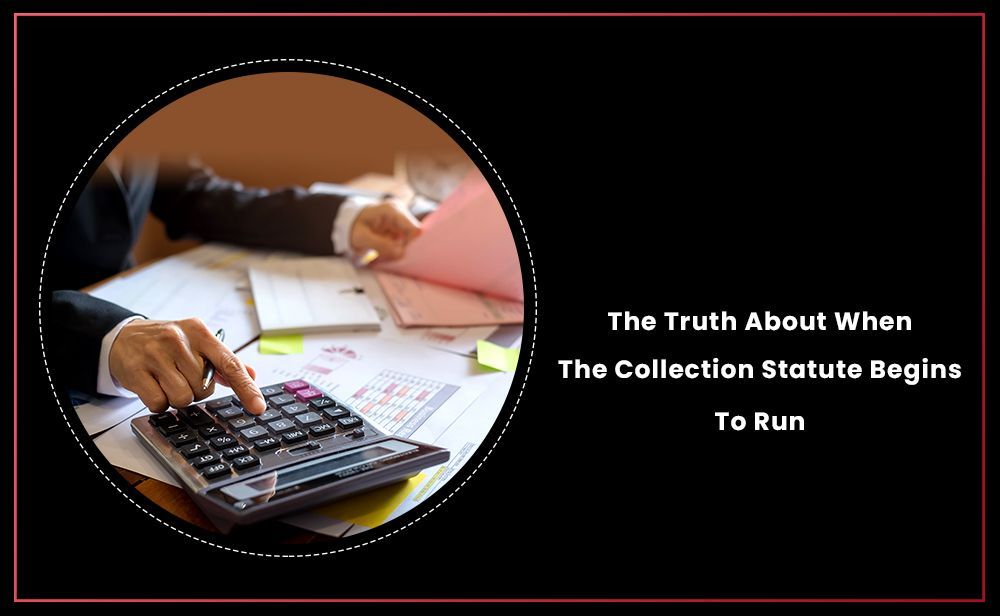
Bookkeeping and accounting are essential parts of every business, regardless of industry or sector. However, not all companies have the time or budget to do the task justice. Thus, businesses, especially ones that operate on more minor scales and work within a limited budget, tend to overlook bookkeeping procedures and end up with issues come tax time. The advantage of hiring a Certified Public Accountant includes representation when it comes to IRS audits and much more. However, it is easy to fall prey to the many myths out there simply because we are unaware of crucial tax information. There’s a lot of misinformation out there, and blindly following someone else’s lousy advice could get you into hot water. As experts in the field, we at Christopher G Carmona CPA, APC , have written down the truth about when the tax collection statute begins so you can be well prepared. What is a tax collection statute? Your tax collection statute refers to the time period in which you are expected to pay your tax amount. The Collection Statute Expiration Date (CSED) marks the end of the collection period, the time period established by law for the IRS to collect taxes. The CSED is normally ten years from the date of the assessment. The collection statute begins to run once the taxpayer’s information is in the IRS system, and the tax liability is calculated (i.e., The “assessment date”). Bankruptcy extends the statute of limitations on collection by the time you were in bankruptcy, plus six months. If you filed for bankruptcy but did not eliminate all of your tax liabilities, the IRS will have more time to collect the non-discharged taxes from you. Remember that if a return is audited or a taxpayer files an amended return, and additional tax is owed, the ten-year collection statute on the additional taxes will be later than the original return’s CSED. Additionally, many penalties carry their CSED date, including the Estimated Tax Penalty, Deposit Penalty, Delinquency Penalty, various civil penalties, Fraud Penalty, and Negligence Penalty. In conclusion, the date of assessment and collection statute expiration date are two integral components of the tax collection representation process. It is vital for tax professionals to know how to obtain these dates and keep watch for CSED date inaccuracies on a client’s IRS account. Through determining the CSED, we, as tax practitioners, can provide the best representation advice and remedies for our clients. For more information about how we can help you, reach out to Christopher G Carmona CPA, APC . Our trusted services include assisting with IRS notices, IRS audits, IRS penalties, unfiled tax returns, innocent spouse relief, and IRS payroll tax debt relief. We also help clients that owe the IRS money. We serve clients across Diamond Bar, Los Angeles, Oceanside, Orange County, Riverside County, San Diego County, and the surrounding areas. Get in touch with us today To learn more about what we do, please click here . To contact us, please click here or call us at (800) 227-2891 or (323) 707-6148 .

It’s that time of year again when you have to start thinking about your taxes. For some people, this is a simple process. They gather up their documents and send them off to their accountant. But for others, it’s a complicated and stressful process. They’re not sure what they’re doing and are worried about making a mistake. If you’re in the latter group, don’t worry. You’re not alone. Millions of people feel the same way as you do. And there’s no need to stress. With a little bit of knowledge and some helpful resources, you can take care of your taxes with ease. My experience as a tax professional at Christopher G Carmona CPA, APC , has taught me that many taxpayers lack a basic understanding of an Offer in Compromise. So, let’s start by understanding about Offer in Compromise: The Offer in Compromise (OIC) program is an IRS program that offers taxpayers a way to settle their tax debt for less than the full amount they owe. The program is designed for taxpayers who cannot pay their full tax liability and is not intended for those who can pay their full tax liability in a timely manner. The Doubt: “If I need to file an Offer in the second half of the year, can I make up estimated tax payments even if they are late, or do I need to wait until next year to file the Offer?” The Truth: Yes, you can make up payments to get the taxpayer into compliance. The payments must be in the system when the Offer unit reviews the Offer to see if it is processable. However, the IRS recommends waiting until you have filed all required tax returns and have received notification of the tax debt you owe. There are a few requirements that taxpayers must meet in order to qualify for an offer in compromise, and the process can be a bit complicated. But if you’re struggling to pay your taxes, it’s worth exploring whether an offer in compromise is right for you. As a leading CPA firm in Diamond Bar, CA, Christopher G Carmona has over seventeen years of experience providing quality services that add value to clients. My services include assisting with IRS notices, IRS audits, IRS penalties, unfiled tax returns, innocent spouse relief, and IRS payroll tax debt relief. We also help clients that owe the IRS money. Get in touch with me today! To learn more about the services I offer, please click here . To get in touch with me, please click here or call me at (800) 227-2891 or email me at christopher@settlemytaxdebts.com .

Bankruptcy is often viewed as an admission of failure or a defect of character. But, bankruptcy is not a desperate move but a second chance to rebuild your financial future. However, filing for bankruptcy isn’t pleasant or simple. It can be easy to get tangled up in the hoops you have to jump through and get into trouble with the IRS. That’s right! So before filing, ensure you’ve looked at all the information about bankruptcy and consider hiring a financial professional. As experts in the field, we at Christopher G Carmona CPA, APC want you to understand what really happens when you declare bankruptcy. For your benefit, we have compiled information regarding IRS and bankruptcy in order to help you. Bankruptcy and the IRS Section 362 of the Bankruptcy Code provides that, with few exceptions, all collection activity by creditors must cease once the client files for bankruptcy. This includes the IRS and its efforts to pursue the collection of back taxes. So one of the immediate benefits of filing for bankruptcy is that it can put a stop to all IRS and state revenue departments’ collection efforts against the taxpayers and their property. The bankruptcy effectively removes the case from the IRS Collection Division and moves it to the IRS’s Insolvency Unit, which deals with bankruptcy cases. This can give a taxpayer immediate relief in working out a plan through bankruptcy when the IRS may have otherwise been unwilling to work with the taxpayer. Now that you know what bankruptcy is and how it works, you can start exploring your options with a bankruptcy expert and put yourself in the best position to succeed. If you are looking for a CPA firm in Diamond Bar, CA, reach out to the experts at Christopher G Carmona CPA, APC . If you’ve received an IRS letter, or other tax correspondence from the IRS, a state agency, or a local agency, it can be difficult to know what to do next. We represent clients who owe IRS penalties, interest, and taxes. We offer our services across Diamond Bar, Los Angeles, Oceanside, Orange County, Riverside County, San Diego County, and the surrounding areas. Get in touch with me today! To learn more about the services we offer, please click here . To get in touch with me, please click here or call me at (800) 227-2891 or (323) 707-6148 or email me at christopher@settlemytaxdebts.com or christophercarmona@hotmail.com .
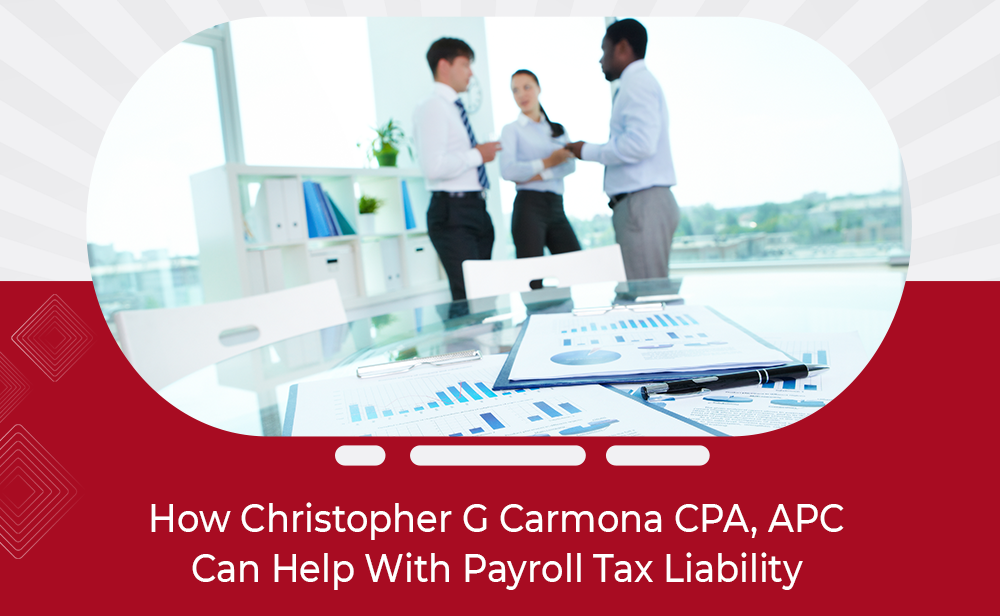
As a Certified Public Accountant and a tax expert, I always have to work within the purview of the tax law. However, very often, I have encountered cases that require me to go beyond what I generally do to ensure that my clients get what they deserve and ensure success. Keep reading to learn how to resolve a complicated payroll tax liability issue. The challenge and solution If the taxpayer claims that either they did not have bank signature authority or does not know if they had authority, the bank signature card is critical. A copy of the bank signature card may be in the Freedom of Information Act ‘‘FOIA’’ information you receive, but if not, have the taxpayer go to the bank to obtain a copy. However, if not, have the taxpayer go to the bank to obtain a copy. In the event that the bank refuses because it does not have signature authority, you may raise this issue in your protest or in the hearing before the Appeals Commission. One of the most effective defenses to a trust fund assessment is to show the taxpayer could not have been responsible because they did not have signature authority. This means they could not have paid the taxes even if they wanted to as they could not direct payment for taxes, thus rebutting a claim of willfulness. The Bottom Line At Christopher G Carmona CPA, APC, I am a Certified Public Accountant in Diamond Bar, Los Angeles County, and I ensure that I put your needs above everything else. If you’ve received an IRS letter, or other tax correspondence from the IRS, a state agency, or a local agency, it can be difficult to know what to do next. I represent clients who owe IRS penalties, interest, and taxes. I also help you and your company out in case you have become victims of fraud. I offer my services across Diamond Bar, Los Angeles, Oceanside, Orange County, Riverside County, San Diego County, and the surrounding areas. Get in touch with me today! To learn more about the services I offer, please click here . To get in touch with me, please click here or call me at (800) 227-2891 or (323) 707-6148 or email me at christopher@settlemytaxdebts.com or christophercarmona@hotmail.com .
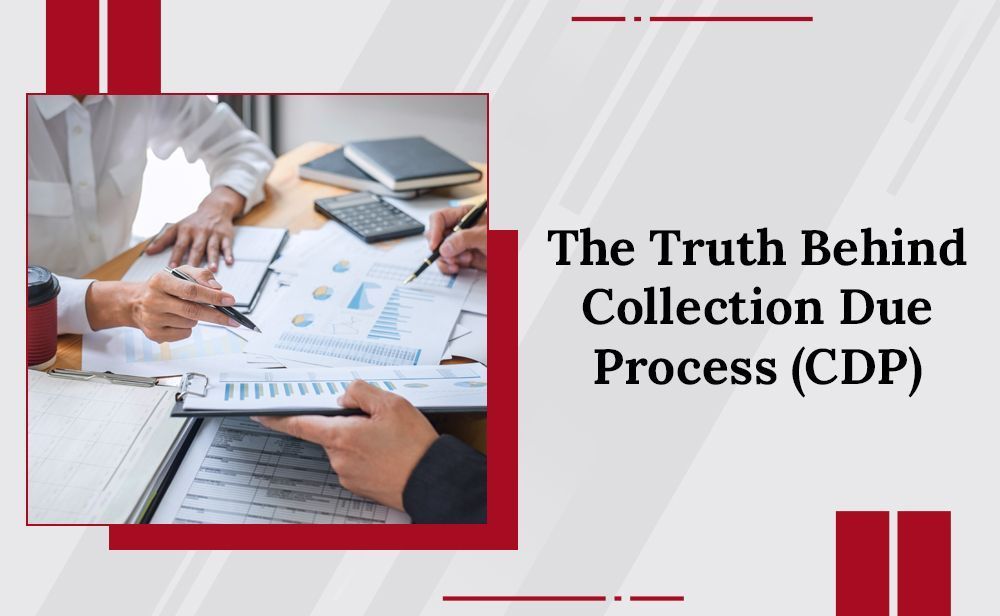
The IRS restructuring act added Section 6320 of the U.S. Tax Code. It gives you the right to request a hearing when the IRS has filed a tax lien against you or has issued you a notice that it intends to file a levy. As an expert in the field, Christopher G Carmona CPA, APC , wants to help you understand the truth behind how a Collection Due Process (CDP) hearing works. Purpose of a CDP hearing A CDP hearing allows taxpayers and their representatives the opportunity to present collection alternatives to the settlement officer that include installment agreements, proposing an offer in compromise that would settle the issue for less than you currently owe, or requesting currently not collectible status. If the taxpayers have a CDP (Collection Due Process) hearing, they are able to raise the underlying liability. However, they must do it at the first opportunity. What this means is that the taxpayer must raise the issue of the liability when they are allowed their first CDP hearing, whether that notice is for the threat to levy or the filing of the NFTL (Notice of Federal Tax Liens). The taxpayers can raise the issue when they file Form 12153 by checking “Other” at the bottom of Box 8 and writing in the explanation that they don’t believe they owe the money the IRS believes they do. When the taxpayers do hear back from Appeals, they should submit their documentation to the Settlement Officer for consideration and attempt to have the liability reduced. Takeaway Filing a request for a CDP hearing forces the IRS to suspend its collection efforts against you. Suspending IRS collection efforts gives you the time to gather the documentation you need to offer an alternative for collecting the tax due if you believe that an offer in compromise would benefit the IRS more than simply seizing your assets. If you’ve received an IRS letter, or other tax correspondence from the IRS, a state agency, or a local agency, it can be difficult to know what to do next. I, Christopher G Carmona CPA, APC , represent clients who owe IRS penalties, interest, and taxes. I offer my services across Diamond Bar, Los Angeles, Oceanside, Orange County, Riverside County, San Diego County, and the surrounding areas. Get in touch with me today! If you are looking for a CPA firm in Diamond Bar, CA, reach out to me by calling me on my toll-free numbers (800) 227-2891 or (323) 707-6148 , or send me an email at christopher@settlemytaxdebts.com or christophercarmona@hotmail.com . For a complete list of my services, please click here . If you have any questions about filing taxes and accounting, I would love to hear from you. Please contact me here.
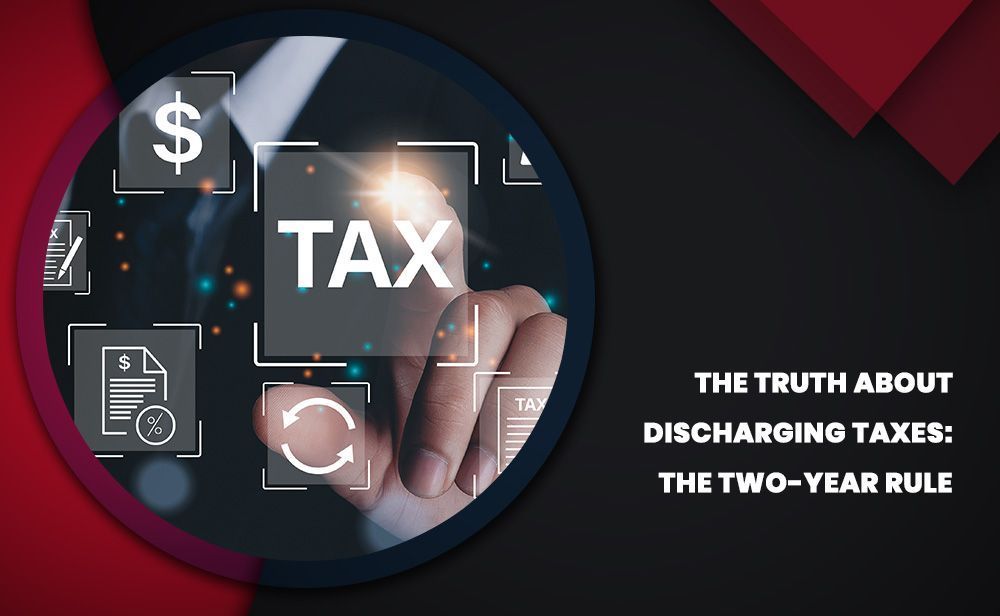
With the downturn in the economy and massive job losses, personal bankruptcy filings have exploded. Many clients may benefit from including federal tax debts in their petition during this time. Besides being aware of the tax resolution options of bankruptcy, a professional will be familiar with administrative tax resolution methods, which the client should pursue first. As experts in the field, we at Christopher G Carmona CPA, APC want to help you understand the truth about discharging taxes and how it can affect you. A late-filed tax return must have actually been filed more than two years before the bankruptcy petition date. In order for a document to be considered a ‘return,’ under either the bankruptcy or the tax laws, it must purport to be a return, be executed under penalty of perjury, contain sufficient data to allow calculation of tax, and represent an honest and reasonable attempt to satisfy the requirements of the tax laws. Therefore, although a substitute for return SFR (Substitute For Return) generally doesn’t count as a return, if the debtor signs the SFR (Substitute For Return), it may constitute a return. Therefore, it is almost always advisable for the client to file all delinquent returns and, if possible, let the mechanical time frames pass before the bankruptcy petition is filed. If you’ve received an IRS letter, or other tax correspondence from the IRS, a state agency, or a local agency, it can be difficult to know what to do next. At Christopher G Carmona CPA, APC , we represent clients who owe IRS penalties, interest, and taxes. I offer my services across Diamond Bar, Los Angeles, Oceanside, Orange County, Riverside County, San Diego County, and the surrounding areas. Get in touch with us today! For a complete list of our services, please click here . If you have any questions about filing taxes and accounting, I would love to hear from you. Please contact me here , or call us toll free at (800) 227-2891 or (323) 707-6148 .
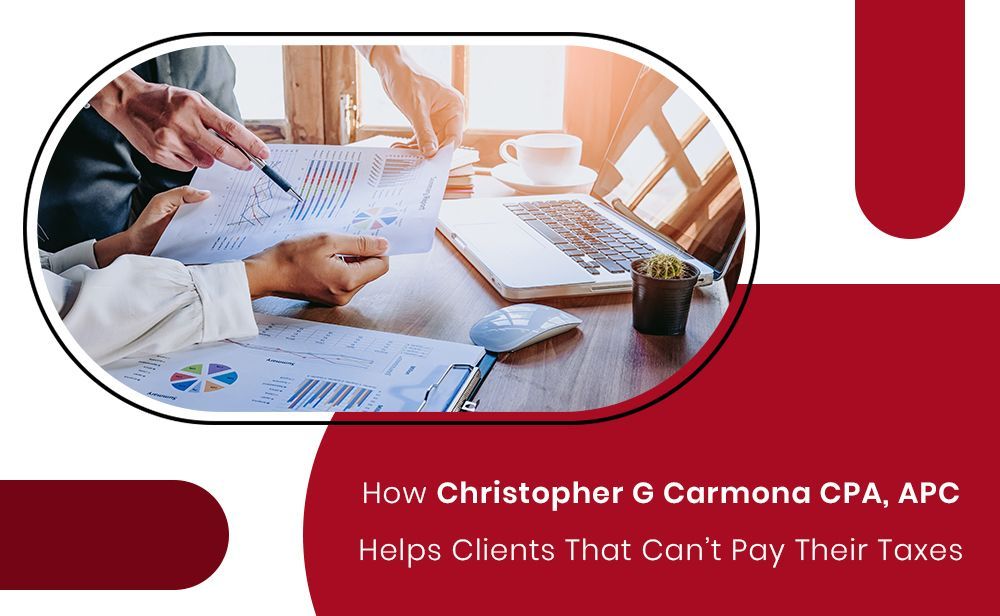
At Christopher G Carmona CPA, APC , we are a CPA Firm that strives to prepare returns at affordable prices while minimizing taxes for clients. We listen carefully to understand our client’s concerns. Therefore, we like to find solutions to the tax problems they may have with the Internal Revenue Service (IRS). Please keep reading to learn how we help clients that can’t pay their taxes. The Challenge: The client cannot meet their tax obligations For various reasons, our clients cannot afford to pay the total tax they owe to the IRS. On these occasions, taxpayers must submit an RCP “Reasonable Collection Potential” analysis to indicate that they can make some payments. Since the amount is insufficient to pay the total liability within the time remaining on the Collection Statute, the IRS will offer a compromise. The Solution: Arrange Partial-Pay Installment Agreement (“PPIA”) A Partial-Pay Installment Agreement (“PPIA”) is reached when a taxpayer provides the relevant financial information to the IRS. We help to make the process seamless, which creates peace of mind for the client. The Bottom Line The PPIA is just like a regular installment agreement, except that the IRS will revisit the taxpayer every eighteen months to ascertain if their ability to pay has improved. If you face a similar challenge, get in touch with Christopher G Carmona, CPA, APC , today. As the best CPA Firm in Diamond Bar, CA, we have over fifteen years of experience providing quality services that add value to clients. Our trusted services include assisting with IRS notices, IRS audits, IRS penalties, unfiled tax returns, innocent spouse relief, and IRS payroll tax debt relief. We also help clients that owe the IRS money. We serve clients across Diamond Bar, Los Angeles, Oceanside, Orange County, Riverside County, San Diego County, and the surrounding areas. To get started, get in touch with us by clicking here . To learn more about how we can help you, please click here . Or, to read what our clients are saying about us, please click here .
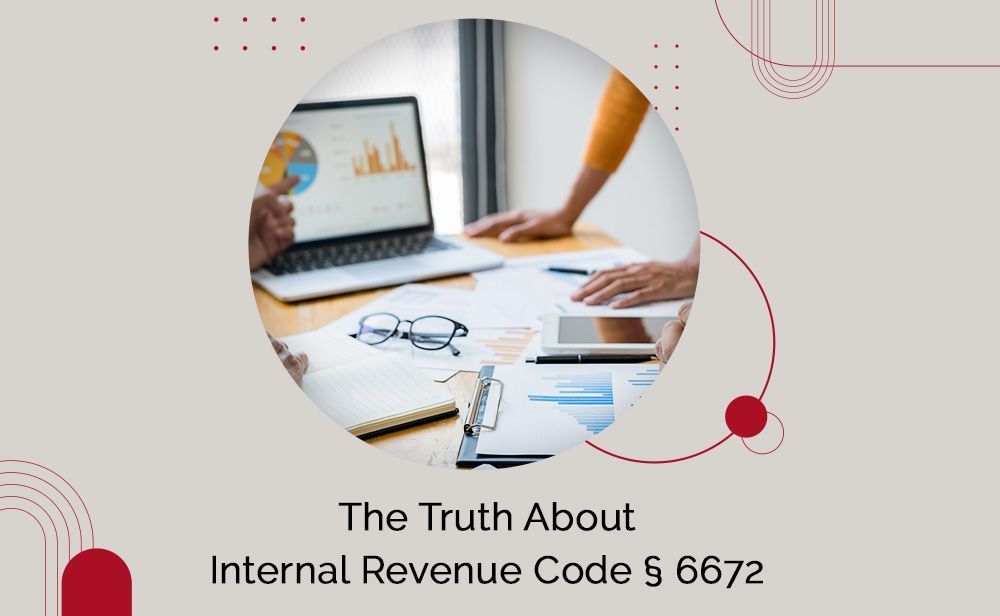
The Internal Revenue Service (IRS) collects payroll taxes for social security payments. Therefore, it resolutely chases down firms that make deductions from employees’ salaries but don’t submit the contributions on time. Sometimes individuals within the company that are oblivious to the various rules can also land up in the soup through no fault of their own. The hefty penalties and interest can soon add up and make one feel like they’re carrying the weight of the world on their shoulders. So, to ensure you follow the right course of action, the experts at Christopher G Carmona CPA, APC have demystified Internal Revenue Code § 6672. Read on to learn more. The general rule: IRC § 6672 allows the Internal Revenue Service to recover “trust funds” withheld from employee’s pay from “any person required to collect, truthfully account for, and pay over any tax imposed.” It also includes “Those who willfully fail to collect such taxes, or truthfully account for and pay over such tax, or willfully attempt to evade or defeat any such tax or the payment thereof.” There are two critical elements required for an individual or business to be held responsible for the Trust Fund Recovery Penalty (TFRP) under IRC § 6672: The person had to be required to collect, account, and pay over the payroll taxes, and The person’s failure to do so must have been willful. As a result, if you failed to collect and submit payroll taxes properly and require professional representation, contact our office today. At Christopher G Carmona CPA, APC , we are an experienced CPA firm in Diamond Bar, CA. Our founder has been practicing public accounting since 2005 and has expertise in forensic accounting. The specialist knowledge helps us to take care of IRS notices, IRS audits, IRS penalties, unfiled tax returns, innocent spouse relief, and IRS payroll tax debt relief. We also assist clients that owe money to the IRS. We serve clients across Diamond Bar, Los Angeles, Oceanside, Orange County, Riverside County, San Diego County, and the surrounding areas. To learn more about our services, please visit our website here or get in touch with us by clicking here .
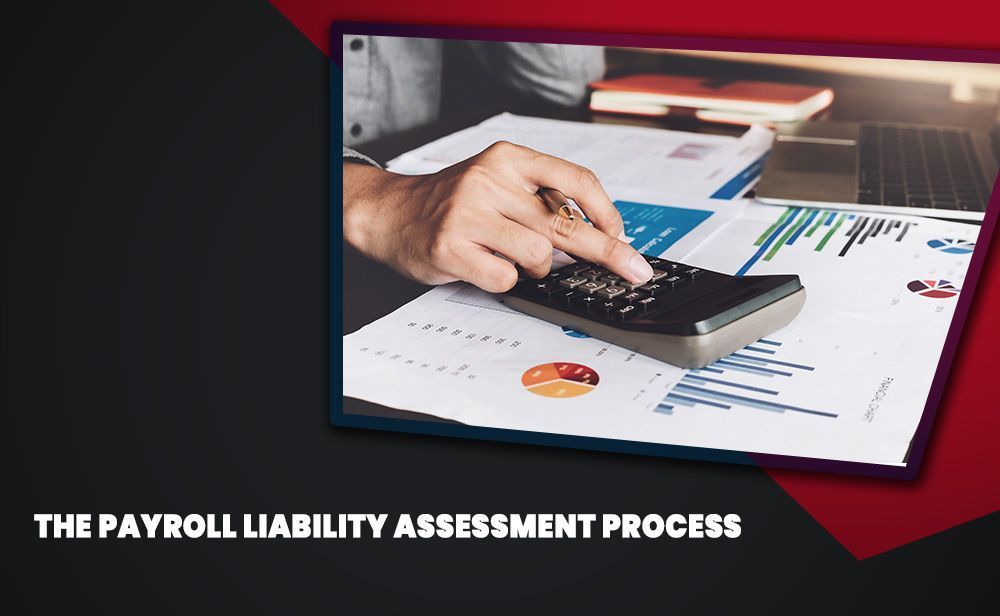
At Christopher G Carmona CPA, APC , we understand that payroll tax payment and filing requirements can be quite a challenge. The rules can be complex, and penalties for non-compliance severe, but accurate and timely compliance is the key to avoiding payroll tax penalties! As a leading Certified Public Accountant in Diamond Bar, Los Angeles County, I’ve compiled a list of important details about the IRS’s approach to collecting payroll taxes. Examine the list to ensure that you are effectively handling payroll tax liabilities. When a company owes payroll taxes, the process the IRS will pursue is the following: The payroll returns are filed. The taxes are assessed. Demand for payment is made on the company. If the company can not make payment within a short time, the IRS Revenue Officer will attempt to determine who the responsible parties are. Form 4180 Trust Fund interviews will be conducted. The IRS will then make proposed assessments against all the parties it believes are responsible with Letter 1153. Letter 1153 also includes a waiver form, Form 2751. Taxpayers can either sign the 2751 and be deemed responsible or file a written protest denying responsibility within 60 days of receiving the Letter 1153. Those taxpayers held responsibly will either pay or have to pursue a collection alternative. If you have any concerns about payroll taxes or you’re looking for a reliable accounting firm to help simplify the process, reach out to the tax expert at Christopher G Carmona CPA, APC . I am a Certified Public Accountant in Diamond Bar, Los Angeles County, and I ensure that I put your needs above everything else. If you’ve received an IRS letter, or other tax correspondence from the IRS, a state agency, or a local agency, it can be difficult to know what to do next. I represent clients who owe IRS penalties, interest, and taxes. I also help you and your company out in case you have become victims of fraud. I offer my services across Diamond Bar, Los Angeles, Oceanside, Orange County, Riverside County, San Diego County, and the surrounding areas. To learn more about my services, please click here . Have a question? I’d love to hear from you. Contact me here .
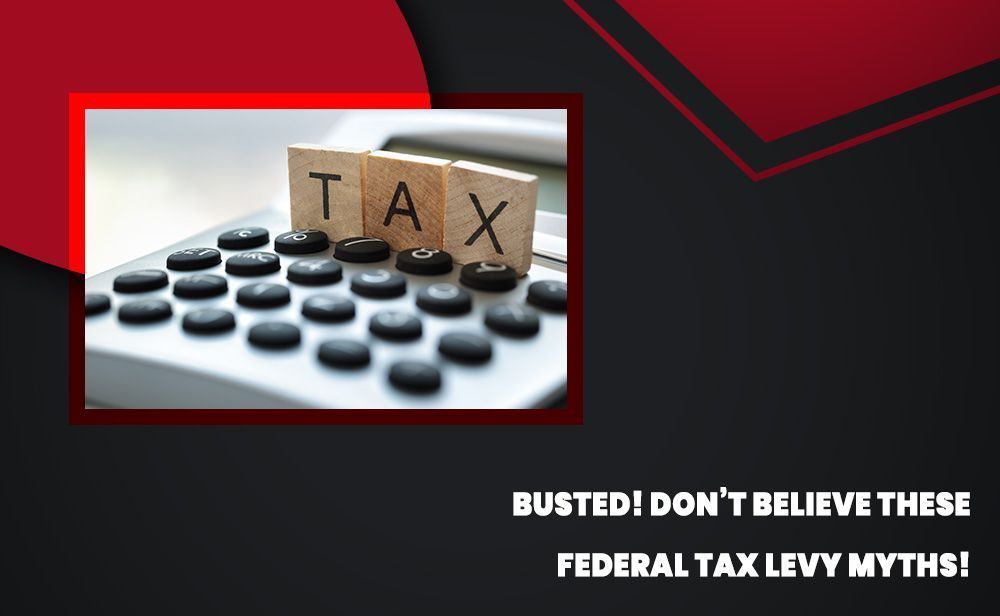
Public accountants help with tax levy preparation and filing. They also assist with asset protection, estate planning, bookkeeping and accounting. They provide information about tax laws and regulations along with helping with asset protection and estate planning. Many myths are floated around about accountants and taxes, in general. These myths can discourage someone in need of hiring a professional accountant. The accountant can help identify deductions and credits that a filer might not even be aware of. To help you steer clear of these misconceptions, CHRISTOPHER CARMONA, CPA, CFE, CALIFORNIA DIAMOND BAR, CA has debunked some of the most widely believed myths about taxes. Myth 1: Seizure of a taxpayer’s assets is to settle back tax debt When the taxpayer fails to pay the past taxes, their assets are seized, this is known as a tax levy. A wage cut, seizure of a bank account or even a possession of the taxpayer’s money could be a possible outcome in case of failing to pay the taxes. However, the tax levy is not a way to settle back tax debt. There are other ways used to collect what the taxpayer owes. Myth 2: Levies can be a cause of embarrassment and economic devastation Contrary to popular belief, the IRS has a whole process at work before issuing levies. However, even after several reminders, the taxpayers ignore the IRS notices they impose levies. This often leaves the defaulters shocked, and they seek to employ an expert to assist them. If you’re looking to steer clear of these myths, reach out to CHRISTOPHER CARMONA, CPA, CFE, CALIFORNIA DIAMOND BAR, CA . as the best Certified Public Accountant in Diamond Bar, Los Angeles County. We serve clients across Diamond Bar, Los Angeles, Oceanside, Orange County, Riverside County, San Diego County, and the surrounding areas. For a complete list of our services, please click here . If you have any questions about CHRISTOPHER CARMONA, CPA, CFE, CALIFORNIA DIAMOND BAR, CA , we’d love to hear from you, please contact us here .

An Offer In Compromise (OIC) is an agreement between a taxpayer and the Internal Revenue Service that settles a taxpayer’s tax liabilities for less than the full amount owed. The Internal Revenue Service (IRS) will accept an offer in compromise when it is unlikely that the tax liability can be collected in full and the amount offered reasonably reflects collection potential. However, taxpayers who can fully pay the liabilities through an installment agreement or other means generally won’t qualify for an OIC in most cases. As an expert in the field, Christopher G Carmona CPA, APC has written down the steps you can take if you do not qualify for an OIC. Because the IRS will not consider an OIC if the taxpayer shows the ability to full-pay the liability within the time remaining on the statute, it is critical that they look at how much time remains on the collection statute and calculate if the taxpayer could fully pay the liability. To do this, one needs to look at the net equity calculated from assets and assume the taxpayer made their future income payments until the end of the statute. If the taxpayer’s equity in assets and future income will cover the liability within the time remaining, then the taxpayer is not considered eligible to file an OIC. The taxpayer would be required to get into an installment agreement. A payment plan is an agreement with the IRS to pay the taxes they owe within an extended timeframe. You should request a payment plan if you believe you will be able to pay your taxes in full within the extended time frame. If you qualify for a short-term payment plan, you will not be liable for a user fee. If you are looking for a CPA firm in diamond bar, CA, reach out to the expert at Christopher G Carmona CPA, APC . If you’ve received an IRS letter, or other tax correspondence from the IRS, a state agency, or a local agency, it can be difficult to know what to do next. I represent clients who owe IRS penalties, interest, and taxes. I offer my services across Diamond Bar, Los Angeles, Oceanside, Orange County, Riverside County, San Diego County, and the surrounding areas. For a complete list of our services, please click here . If you have any questions about CHRISTOPHER CARMONA, CPA, CFE, CALIFORNIA DIAMOND BAR, CA , we’d love to hear from you, please contact us here .

With the IRS claiming between $50-$52 billion in collectable tax debt but limited resources to collect it, Congress passed a law requiring the IRS to use private collection agencies to help retrieve this debt. The law, passed in 2015, led the IRS to assign certain types of inactive debt cases to Private Debt Collection (PDC) agencies to help the IRS collect the debts they were not actively pursuing. If your tax debt is assigned to a PDC, you will receive letters from both the IRS and the agency. However, if you feel powerless when dealing with debt collectors, know that their tactics are limited by the Fair Debt Collections Practices Act (FDCPA). As an expert in the field, Christopher G Carmona CPA, APC , has outlined below what the PDC can do and not do. The Fair Debt Collection Practices Act is a federal law that governs practices by third-party debt collectors. Under the FDCPA, the PDC can contact the taxpayer and attempt to get full-paid or get the taxpayer into a payment arrangement. The PDC, however, cannot take any enforcement action, meaning they have no right to levy the taxpayer. However, if a debt collector sues you over debt and you fail to show up in court, you may lose by default and be ordered to pay. Then if you defy that court order, the collector may pursue an arrest warrant. The PDC also has no authority to compromise a debt or abate tax penalties. For those taxpayers who claim to be in uncollectible status, the PDC sends their case back to the IRS to be worked on. It is possible for taxpayers who prefer to work with the IRS to request in writing that their accounts be sent back to the IRS. The PDC is able to establish a payment plan (installment agreement) with the taxpayer. When this is done, the taxpayer and his or her representative will receive a letter confirming the agreement is in place from the PDC. If you are looking for a CPA firm in Diamond Bar, CA, reach out to Christopher G Carmona CPA, APC . If you’ve received an IRS letter, or other tax correspondence from the IRS, a state agency, or a local agency, it can be difficult to know what to do next. I represent clients who owe IRS penalties, interest, and taxes. I offer my services across Diamond Bar, Los Angeles, Oceanside, Orange County, Riverside County, San Diego County, and the surrounding areas. For a complete list of our services, please click here . If you have any questions about filing taxes and accounting, I would love to hear from you. Please contact me here .
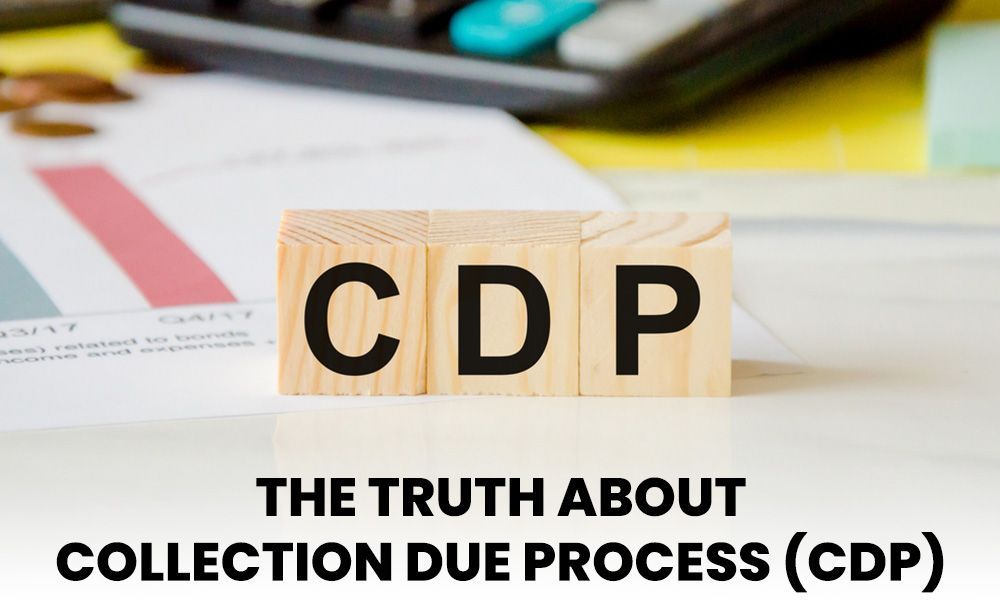
The Collection Due Process (CDP) appeal is your opportunity to seek an independent review of your tax assessment to be sure that the Internal Revenue Service (IRS) has not made a mistake. The CDP appeal is used to appeal any enforcement actions, such as federal tax liens, property seizures, liens or wage garnishments that are made against you. A CDP appeal stops the government from taking action against you. As experts in the field, we at Christopher G Carmona CPA, APC want you to understand what really happens during a CDP. This is why we have written down information regarding the truth about Collection Due Process (CDP) so that you can rightfully take advantage of this service. If the taxpayers have a CDP (Collection Due Process) hearing, they are able to raise the underlying liability. However, they must do it at the first opportunity. What this means is that the taxpayer must raise the issue of the liability when they are allowed their first CDP hearing, whether that notice is for the threat to levy or the filing of the NFTL (Notice of Federal Tax Liens). The taxpayers can raise the issue when they file Form 12153 by checking “Other” at the bottom of Box 8 and writing in the explanation that they don’t believe they owe the money the IRS believes they do. When the taxpayers hear back from Appeals, they should submit their documentation to the Settlement Officer for consideration and attempt to reduce the liability. At your hearing, you can address many different issues that you may have. For example, if you felt that you paid all taxes that were owed or you could not pay your taxes because of having no income or being terminally ill, then the judge at the hearing needs to know those facts about your case. It’s a good idea to talk to a professional before you decide to move forward with a CDP appeal. The tax process can be complex, so having someone with you who understands the law may be helpful to you. If you are looking for a CPA firm in Diamond Bar, CA, reach out to the experts at Christopher G Carmona CPA, APC . If you’ve received an IRS letter, or other tax correspondence from the IRS, a state agency, or a local agency, it can be difficult to know what to do next. We represent clients who owe IRS penalties, interest, and taxes. We offer our services across Diamond Bar, Los Angeles, Oceanside, Orange County, Riverside County, San Diego County, and the surrounding areas. For a complete list of our services, please click here . If you have any questions about filing taxes and accounting, we’d love to hear from you. Please contact us here .

Corporations are obligated to pay a number of taxes, including payroll taxes, sales and use taxes, and income taxes. If they fall behind or fail to pay these taxes, the IRS will come calling and could levy fines and penalties. Typically, people believe that any person in the company who is required to collect, pay over, or financially account for taxes paid to the IRS may be held liable for the failure of payment. However, it is not solely the responsibility of those in charge of finances to be held liable for errors not made by them. Believing in such myths and misconceptions, you find online can severely hamper you. In order to help you steer clear of this misconception, Christopher G Carmona CPA, APC , has debunked this widely believed legal myth in the accounting industry. Myth: It is the responsibility of the person in charge of finances to handle unpaid taxes As you have probably noticed, anyone who is involved in the finances of the employer and who has the ability to determine which creditors are paid may be deemed responsible for any unpaid taxes. This, however, isn’t true. Whether someone will be held liable is based on specific facts and circumstances. The list of the usual employees deemed responsible include: Sole proprietors: For a sole proprietorship, the business and the owner are the same. The owner owns all the business’ assets and liabilities. The IRS does not tax the business itself, but rather it taxes the business owner’s income. As such, if there are any back taxes owed, the business owner is solely liable. Partners: Partnerships are treated very similarly to sole proprietorships. The partnership itself isn’t taxed; rather, the partnership’s income is “passed through” to the partners, who are then individually taxed on their income. Partners in a partnership are then responsible for their own back taxes. Bookkeepers: If possible, refrain from designating bookkeepers as authorized check signers or, at the very least, ensure that either a supervisor or a corporate officer has to sign checks. If you are a business owner who performs your bookkeeping, then you may not be able to claim that you have no decision-making authority or did not know the taxes were due. Instead, protect yourself from personal liability by understanding the risks associated with the role. Lenders/creditors: Any financial body you borrow money from is not responsible for your unpaid taxes. Your lenders/creditors are not all Shylocks. Many are blue-collar workers whose pensions or retirement plans depend in part upon debt investment. It is tempting, in difficult times, to condemn those who make our very choices possible. But, it is still legally not their responsibility to deal with your tax liability. Accounting firms: If you pay someone to prepare your tax return, whether it be a tax preparation service or a professional accountant, you are still a hundred percent responsible for the accuracy of your return. And, if you fail to disclose income on your return, not only will you be liable for the tax owing on this undisclosed income, plus arrears interest, you could also be hit with a “gross negligence” penalty. But, it may be possible to recoup fines and fees from your accounting firm in certain situations. If your accountant refuses to fix any errors made by them or reimburse you for IRS penalties, you may be able to sue your accountant for malpractice and claim those penalties as damages. Parent companies: A parent entity can be liable for the debts of an insolvent subsidiary under specific doctrines that include common law principles such as alter ego, piercing the corporate veil, single business enterprise, agency. They can also be held liable based on state corporate and creditors’ rights laws, federal bankruptcy laws for fraudulent or preferential transfers of subsidiary assets, substantive consolidation in bankruptcy, and “Control group” state and federal liability statutes. Purchasing companies: A purchaser may be held liable for the amount of the seller’s unpaid sales tax, up to the higher sales price or fair market value of the acquired assets. To protect purchasers, many states have implemented a notification procedure through which a purchaser notifies the state’s taxing authority regarding the transaction. Upon receiving such a notification, the state authorities review the seller’s sales tax account for any unpaid tax. If any liability exists, the state will commence a collection action before the asset purchase is completed. The notification procedure ensures the seller’s payment of any outstanding sales tax and protects the purchaser from successor liability. If you’re looking to steer clear of this and other accounting myths like this, reach out to Christopher G Carmona CPA, APC . As a leading Certified Public Accountant in Diamond Bar, Los Angeles County, I ensure that I put your needs above everything else. If you’ve received an IRS letter, or other tax correspondence from the IRS, a state agency, or a local agency, it can be difficult to know what to do next. I represent clients who owe IRS penalties, interest, and taxes. I also help you and your company out in case you have become victims of fraud. I offer my services across Diamond Bar, Los Angeles, Oceanside, Orange County, Riverside County, San Diego County, and the surrounding areas. For a complete list of my services, please click here . If you have any questions about my services, I’d love to hear from you. Please contact me here .
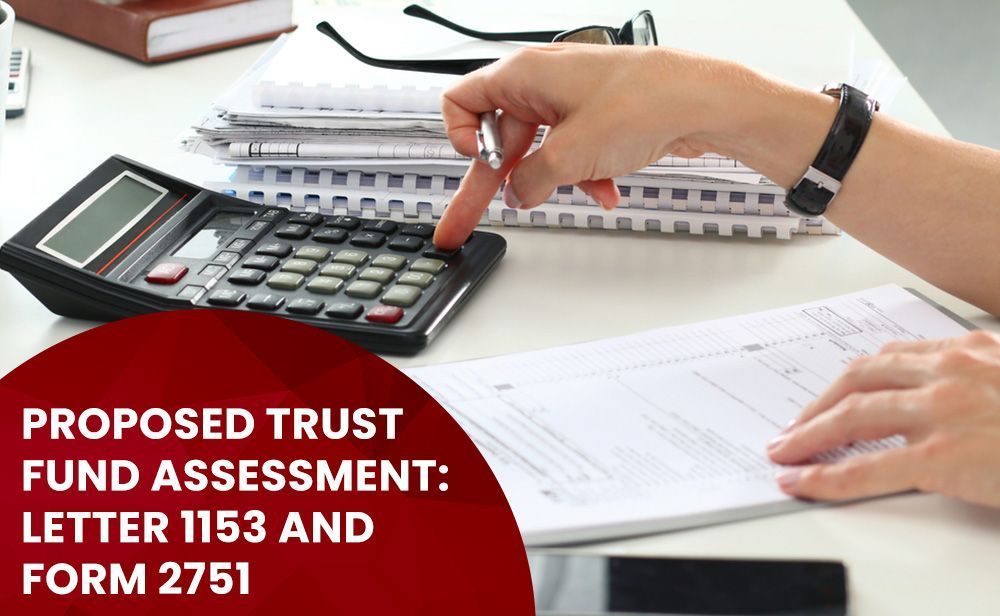
If an employer has not paid federal withholding taxes, the IRS may issue a Letter 1153 assessment and Form 2751. Letter 1153 is an IRS Trust Fund Recovery Penalty (TFRP) assessment against a business or responsible party. If you received a Letter 1153, the IRS has determined that you are responsible for an assessment for unpaid payroll taxes. A Form 2751 is issued along with the Letter 1153 and provides for agreeing to the assessment. To help you learn more about how you should go about the agreement process and how to appeal the proposed assessment in case it isn’t accurate, Christopher G Carmona CPA, APC has put together information on what exactly the Proposed Trust Fund Assessment: Letter 1153 and Form 2751 entail. Once the IRS Revenue Officer identifies the persons responsible for the employer’s failure to pay the payroll taxes, the agent will propose an assessment against those individuals. The taxpayers will receive IRS the Letter 1153, which will tell them that the IRS believes that they are responsible. Along with the Letter 1553 will be a waiver form, Form 2751, that provides a breakdown of the proposed trust fund liability. To accept responsibility for the trust fund liability, the taxpayer just needs to sign Form 2751 and return it to the IRS. Suppose the taxpayer does not agree that they should be held responsible, then the Letter 1153 lays out how to file the protest to challenge the proposed assessment. To challenge the assessment, the taxpayer must file their protest within sixty days of the date on the Letter 1153. If the party fails to respond within the time limit, then the case will be considered unaccepted. Regardless of the taxpayer’s response, the revenue officer will complete Trust Fund Recovery Penalty processing and forward the case within thirty days after the required response period. If you received a Letter 1153 from the IRS and have questions or concerns before signing Form 2751, contact Christopher G Carmona CPA, APC , for a free consultation. I have a leading CPA firm in Diamond Bar, CA. If you’ve received an IRS letter, or other tax correspondence from the IRS, a state agency, or a local agency, it can be difficult to know what to do next. I represent clients who owe IRS penalties, interest, and taxes. I offer my services across Diamond Bar, Los Angeles, Oceanside, Orange County, Riverside County, San Diego County, and the surrounding areas. To learn more about the services I can offer you, please click here . To get in touch with me, please click here .
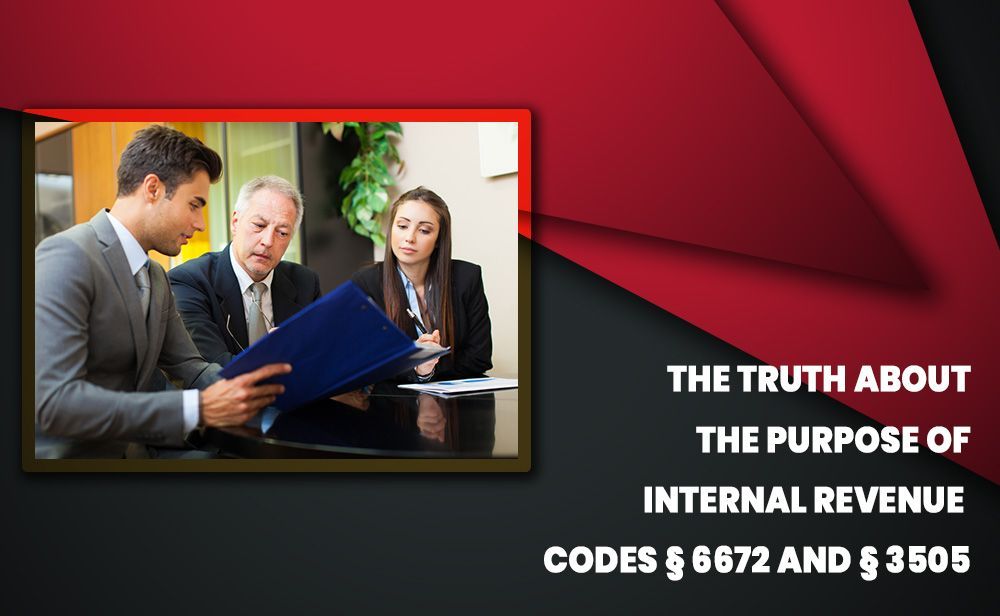
Regardless of any business, if you’re an employer, it is important you know about tax laws, the rules and regulations about tax preparation, and when to pay them. However, as a business owner, you may be oblivious to the tax process, so a wise decision would be hiring a tax professional capable of meeting the requirements of your specific business. The US tax system follows a “pay-as-you-go tax system,” which means that you must pay income tax as you earn or receive your income during the year. Moreover, if you do not pay your income tax withholding and withheld Social Security taxes, the IRS will pursue its collection from officers, directors, stockholders, key employees, and anyone else who could possibly be held liable. To give you a clearer picture of the US tax system, Christopher G Carmona CPA, APC , has explained the two internal revenue codes for the responsible persons and lender liability for trust fund taxes § 6672 and § 3505. The facts! Internal Revenue Codes § 6672 Under Internal Revenue Code (IRC) section 6672(a), an individual can be held personally liable for a penalty for the willful failure to collect, account for, and pay to the IRS the employment taxes of a business. Section 6672 applies to trust fund taxes imposed by Section 7501 of the Internal Revenue Code. Internal Revenue Codes § 3505 Section 3505 of the Internal Revenue Code imposes liability on a lender for an employer’s withholding when the lender has made a payroll loan to that employer, knowing that they did not pay the taxes. So why does the IRS get so cranky when an employer fails to pay over the payroll taxes? The reason is that the unpaid payroll taxes act as a double-hit to the government fisks. Usually: a. The government will be required to issue refunds to the employees who file their 1040 income tax returns despite the fact the IRS never received the funds and, b. The employees will need to be credited for their social security earnings, again, despite the fact, the IRS never received the money. Given that withholding accounts for more than 70% of the revenue for the United States government, it is easy to see why the IRS is aggressive about trying to protect this critical source of funds. For more facts about the Internal Revenue Codes § 6672 and IRC § 3505, reach out to Christopher G Carmona CPA, APC . We are a renowned CPA firm in Diamond Bar, CA, specializing in tax-related problems and representing clients who owe IRS penalties, interest, and taxes. We offer our services across Diamond Bar, Los Angeles, Oceanside, Orange County, Riverside County, San Diego County, and the surrounding areas. To learn more about how we can help you with your taxes, get in touch with us here . If you’d like to explore our other services, visit our website .

Regardless of any business, if you’re an employer, it is important you know about tax laws, the rules and regulations about tax preparation, and when to pay them. However, as a business owner, you may be oblivious to the tax process, so a wise decision would be hiring a tax professional capable of meeting the requirements of your specific business. The US tax system follows a “pay-as-you-go tax system,” which means that you must pay income tax as you earn or receive your income during the year. Moreover, if you do not pay your income tax withholding and withheld Social Security taxes, the IRS will pursue its collection from officers, directors, stockholders, key employees, and anyone else who could possibly be held liable. To give you a clearer picture of the US tax system, Christopher G Carmona CPA, APC , has explained the two internal revenue codes for the responsible persons and lender liability for trust fund taxes § 6672 and § 3505. The facts! Internal Revenue Codes § 6672 Under Internal Revenue Code (IRC) section 6672(a), an individual can be held personally liable for a penalty for the willful failure to collect, account for, and pay to the IRS the employment taxes of a business. Section 6672 applies to trust fund taxes imposed by Section 7501 of the Internal Revenue Code. Internal Revenue Codes § 3505 Section 3505 of the Internal Revenue Code imposes liability on a lender for an employer’s withholding when the lender has made a payroll loan to that employer, knowing that they did not pay the taxes. So why does the IRS get so cranky when an employer fails to pay over the payroll taxes? The reason is that the unpaid payroll taxes act as a double-hit to the government fisks. Usually: a. The government will be required to issue refunds to the employees who file their 1040 income tax returns despite the fact the IRS never received the funds and, b. The employees will need to be credited for their social security earnings, again, despite the fact, the IRS never received the money. Given that withholding accounts for more than 70% of the revenue for the United States government, it is easy to see why the IRS is aggressive about trying to protect this critical source of funds. For more facts about the Internal Revenue Codes § 6672 and IRC § 3505, reach out to Christopher G Carmona CPA, APC . We are a renowned CPA firm in Diamond Bar, CA, specializing in tax-related problems and representing clients who owe IRS penalties, interest, and taxes. We offer our services across Diamond Bar, Los Angeles, Oceanside, Orange County, Riverside County, San Diego County, and the surrounding areas. To learn more about how we can help you with your taxes, get in touch with us here . If you’d like to explore our other services, visit our website .

We are delighted to announce the launch of our new website! Our new website provides our existing and prospective clients a simple yet interactive view of our work and the services we offer. Stay tuned to our blog for new ideas! Sign up here so you never miss an update . For any enquiries and feedback, please write to us at christophercarmona@hotmail.com or christopher@settlemytaxdebts.com or call us at (800) 227-2891 or (323) 707-6148 .

If the taxpayers have a CDP (Collection Due Process) hearing , they are able to raise the underlying liability; however, they must do it at the first opportunity. What this means is that the taxpayer must raise the issue of the liability when they are allowed their first CDP (Collection Due Process) hearing , whether that notice is for the threat to levy or the filing of the NFTL (Notice of Federal Tax Liens) . The taxpayers can raise the issue when they file the Form 12153 by checking “Other” at the bottom of Box 8 and writing in the explanation that they don’t believe they owe the money the IRS believes they do. When the taxpayers do hear back from Appeals, they should submit their documentation to the Settlement Officer for consideration and attempt to have the liability reduced
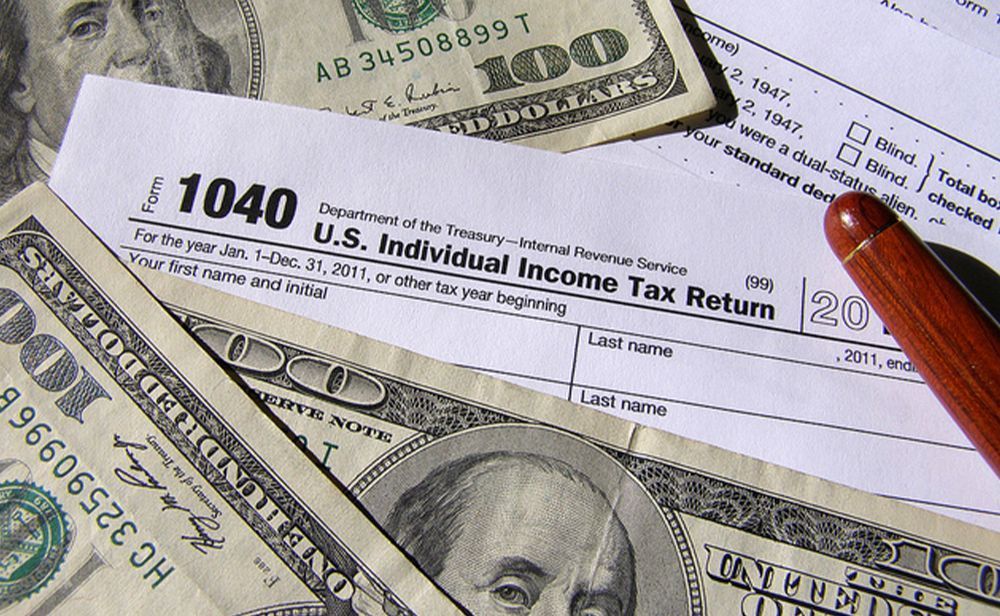
A late-filed tax return must have actually been filed more than two years before the bankruptcy petition date . In order for a document to be considered a ‘return,’ under either the bankruptcy or the tax laws , it must purport to be a return; be executed under penalty of per jury; contain sufficient data to allow calculation of tax ; and represent an honest and reasonable attempt to satisfy the requirements of the tax laws . Therefore, although a substitute for return SFR ( Subsitute For Return ) generally doesn’t count as a return, if the debtor signs the SFR ( Subsitute For Return ) it may constitute a return.
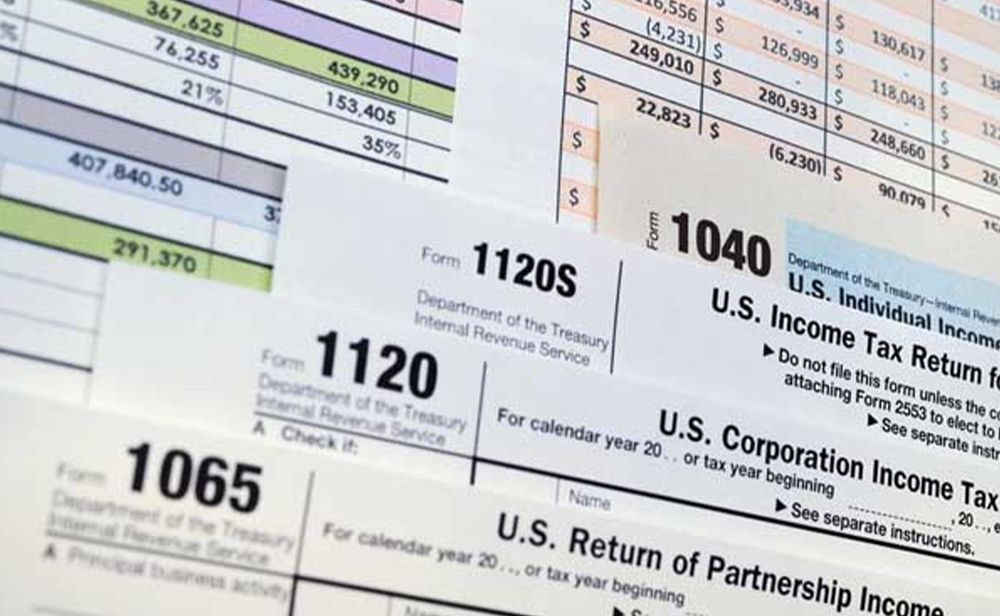
The tax in question must have been assessed more than 240 days prior to the bankruptcy (plus any period of time during which an offer incompromise was pending , plus 30 days). An amended return , an examination of a return , or an audit may trigger a new or second assessment showing an increase in the tax claim . If any of these events occur, the subsequent audit assessment triggers a new 240-day period applicable to the increase in the tax assessment . The original portion of the tax , if dischargeable prior to the audit, would still be dischargeable.

Taxpayers and practitioners who wish to seek TAS’s help can do so by filing a Form 911 , Request for Taxpayer Advocate Service Assistance. The form is completed and faxed to the taxpayer’s local TAS office . A complete listing of these offices is available on the TAS website. After filing the Form 911 with the local TAS office , the practitioner will receive a phone call from a TAS representative within 48 hours to discuss the taxpayer’s situation . TAS (Taxpayer Advocate Service) can be extremely helpful in helping clear up system and procedural issues within the IRS , as well as, with advice for the practitioner who has a messy issue to handle. Practitioners should be sure to make use of TAS whenever appropriate.

A streamlined installment agreement is very similar to the automatic installment agreement . If a taxpayer meets the following criteria, they can simply make a phonecall to the IRS and arrange an installment agreement : The taxpayer owes less than $50,000 The taxpayer has not had a back-tax debt or an installment agreement in the last 5 years The taxpayer agrees to full pay the liability within 72 months or before the Collection Statute Expiration Date (“ CSED ”), whichever occurs first. Just like an automatic agreement, with a streamlined agreement the taxpayer does not have to provide any financial information. The taxpayer can create an agreement with just a phone call (or going to the IRS website ).
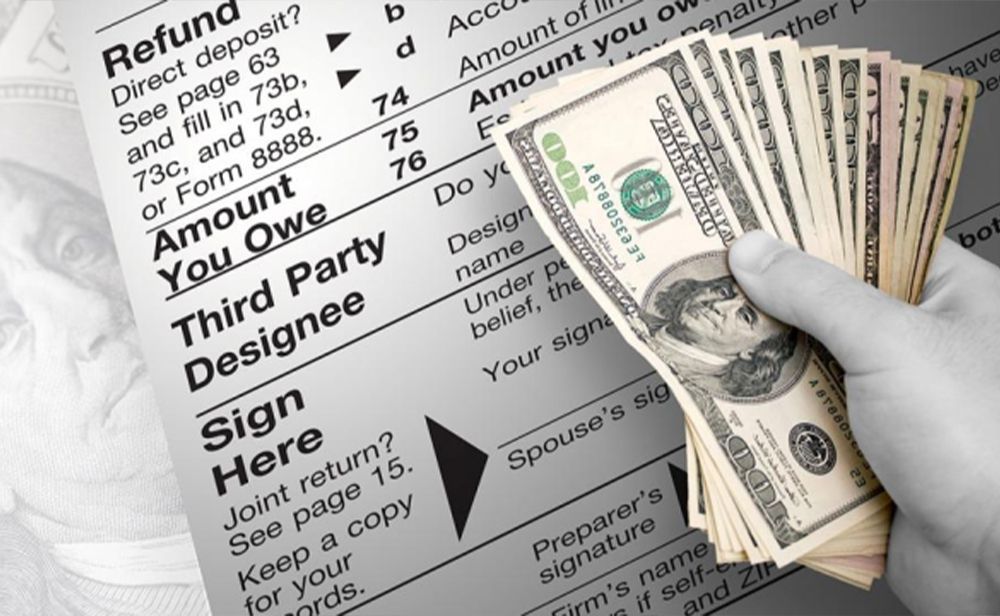
If an employer owes money to the IRS and can pay that liability back in full in short order, then the IRS will resolve the case that way. If, however, the employer will be unable to repay the liability back quickly then the IRS will begin trying to determine which owners and/or employees were responsible for the company’s failure to pay over the payroll taxes . Once the IRS determines who it believes is responsible for the company’s failure to collect and remit the payroll taxes , it will begin the procedures to assess those individuals for the unpaid trust fund portion of the payroll taxes

The PDC ( Private Debt Collection ) can contact the taxpayer and attempt to get either full-paid or get the taxpayer into a payment arrangement . The PDC can not take any enforcement action, meaning they have no right to levy the taxpayer . The PDC also has no authority to compromise a debt or abate tax penalties . For those taxpayers who claim to be in uncollectible status , the PDC would send their case back to the IRS to be worked. It is possible for taxpayers who prefer to work with the IRS to request in writing that their account be sent back to the IRS . The PDC is able to establish a payment plan ( installment agreement ) with the taxpayer. When this is done the taxpayer and his or her representative will receive a letter confirming the agreement is in place from the PDC Christopher G. Carmona CPA,CFE Orange County, USA

Just because someone had signature authority does not mean they ever used that authority or had any knowledge of the tax problems . A critical piece of information to support a client’s defense that they did not sign payroll checks or even other checks would be copies of the cancelled checks . Like the bank signature card , a copy of these checks may be in the administrative file you obtain through the FOIA request. If they are not, the client may need to obtain copies from the bank. You need to review cancelled checks to determine that the client: A. did not sign checks, or B. if they did sign checks, that they did not sign payroll checks. Christopher G. Carmona CPA,CFE Orange County, USA

A fraudulent conveyance is where the tax debtor transfers assets to a third-party with the object or the result of placing the property beyond the reach of the creditor or hindering the creditor’s ability to collect a valid debt . A fraudulent transfer also occurs when property is transferred without fair consideration. Taxpayers who attempt to frustrate collection by transferring away assets that the IRS lien has attached to are usually subject to this claim of fraud, and these liens would be filed against the recipient of the assets . Christopher G. Carmona CPA,CFE Orange County, USA

The Revenue Officer will often seek interviews with those individuals it believes are responsible for the unpaid payroll taxes. The reason is that it helps the IRS determine if there were other individuals who should be considered as responsible parties and pursued for the Trust Fund assessments. The Revenue Officer will conduct the interview utilizing its Form 4180, Report of Interview with Individual Relative to Trust Fund Recovery Penalty or Personal Liability for Excise Taxes. There are issues with the IRS Form 4180. This Form used to be eight pages long in 2003. It is now three pages long. In an effort to reduce the paper used in forms this form had its questions combined into broader ones, reducing the amount of print and therefore the number of pages. The problem is that the questions have become very broad and encompassing, allowing the IRS to potential claim people are responsible who should not be.

